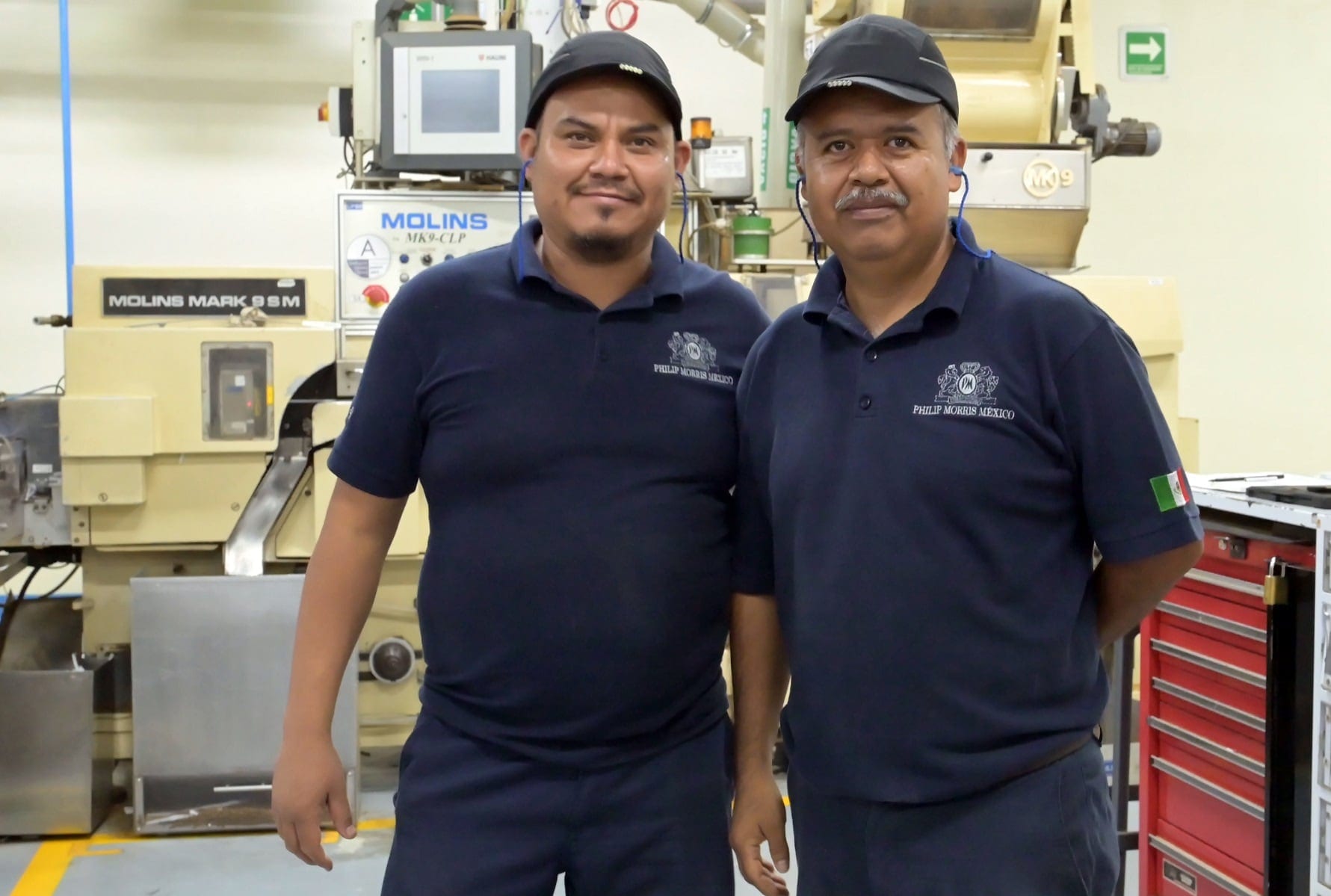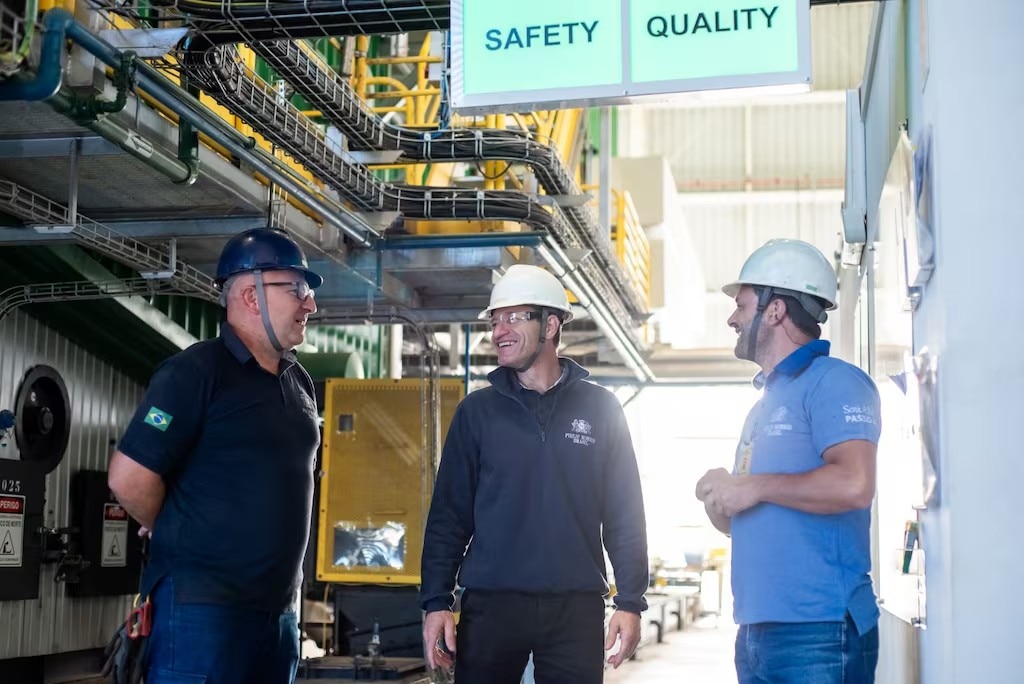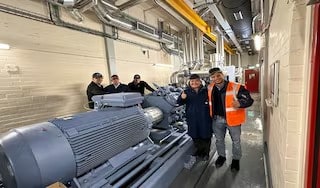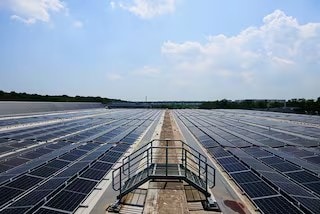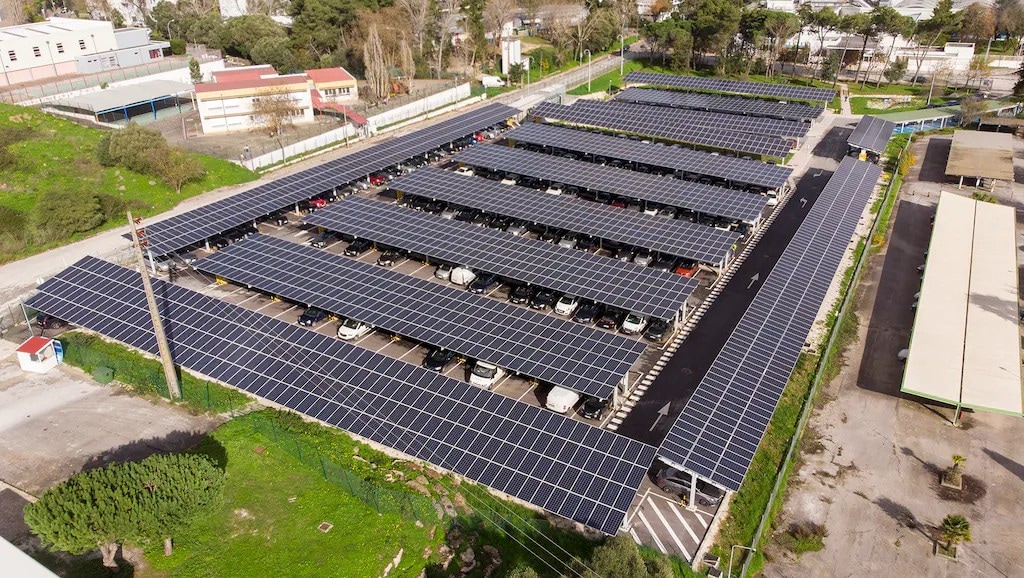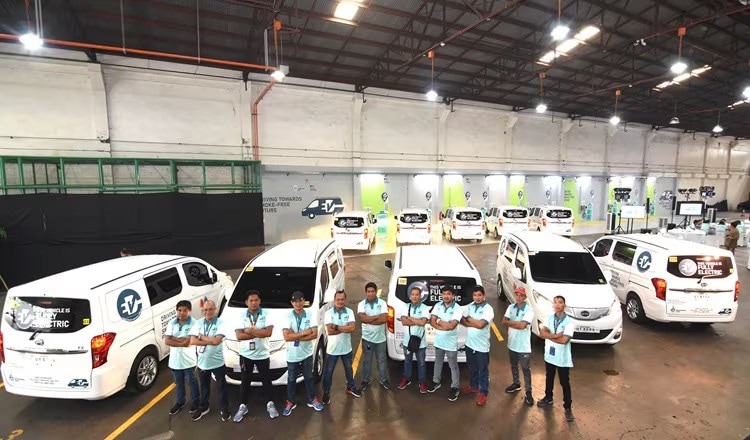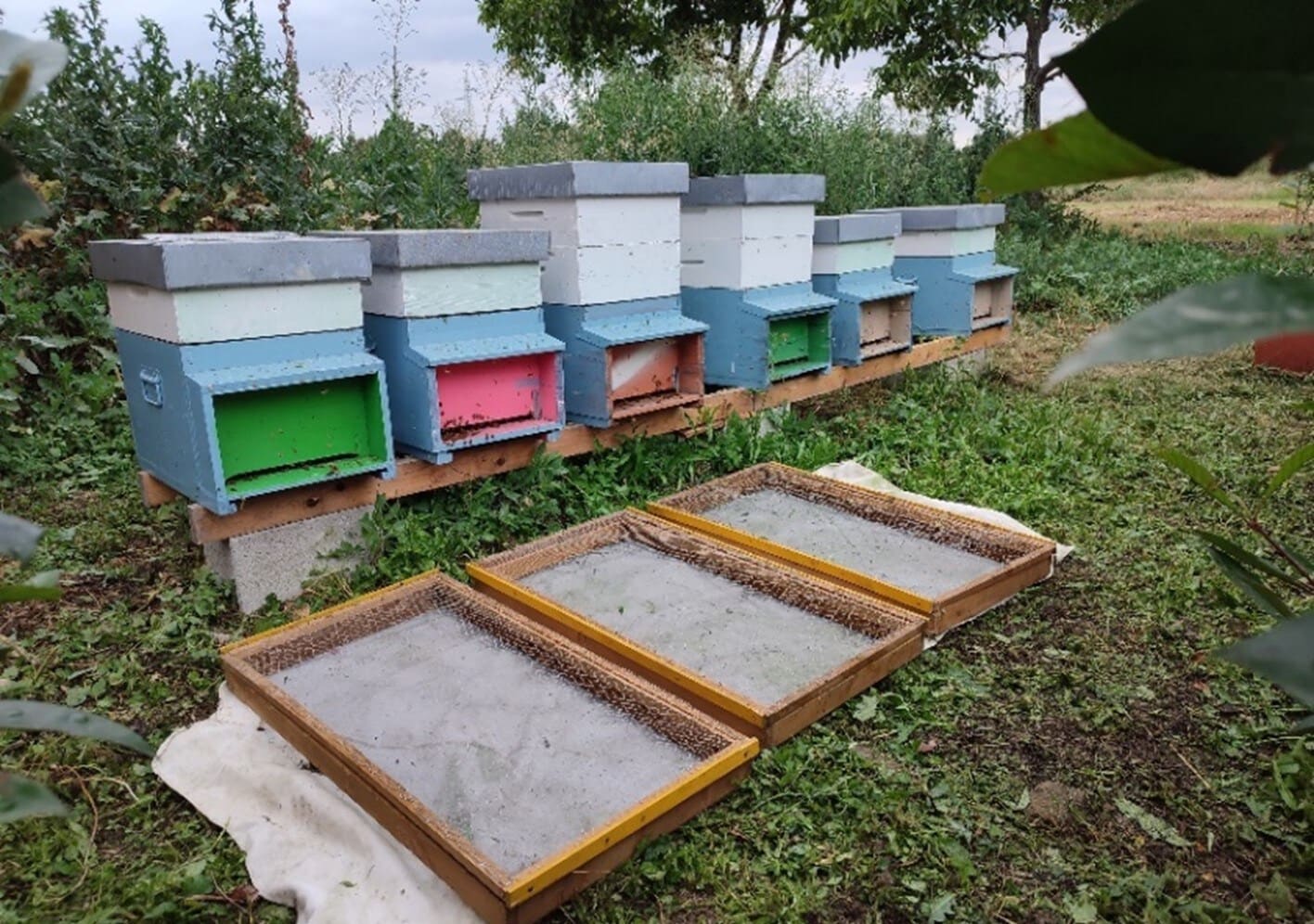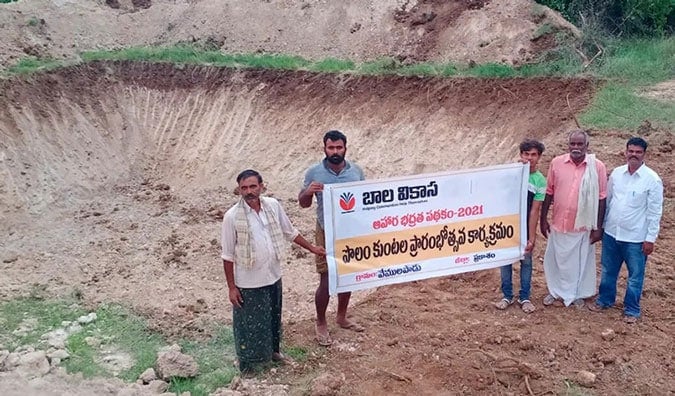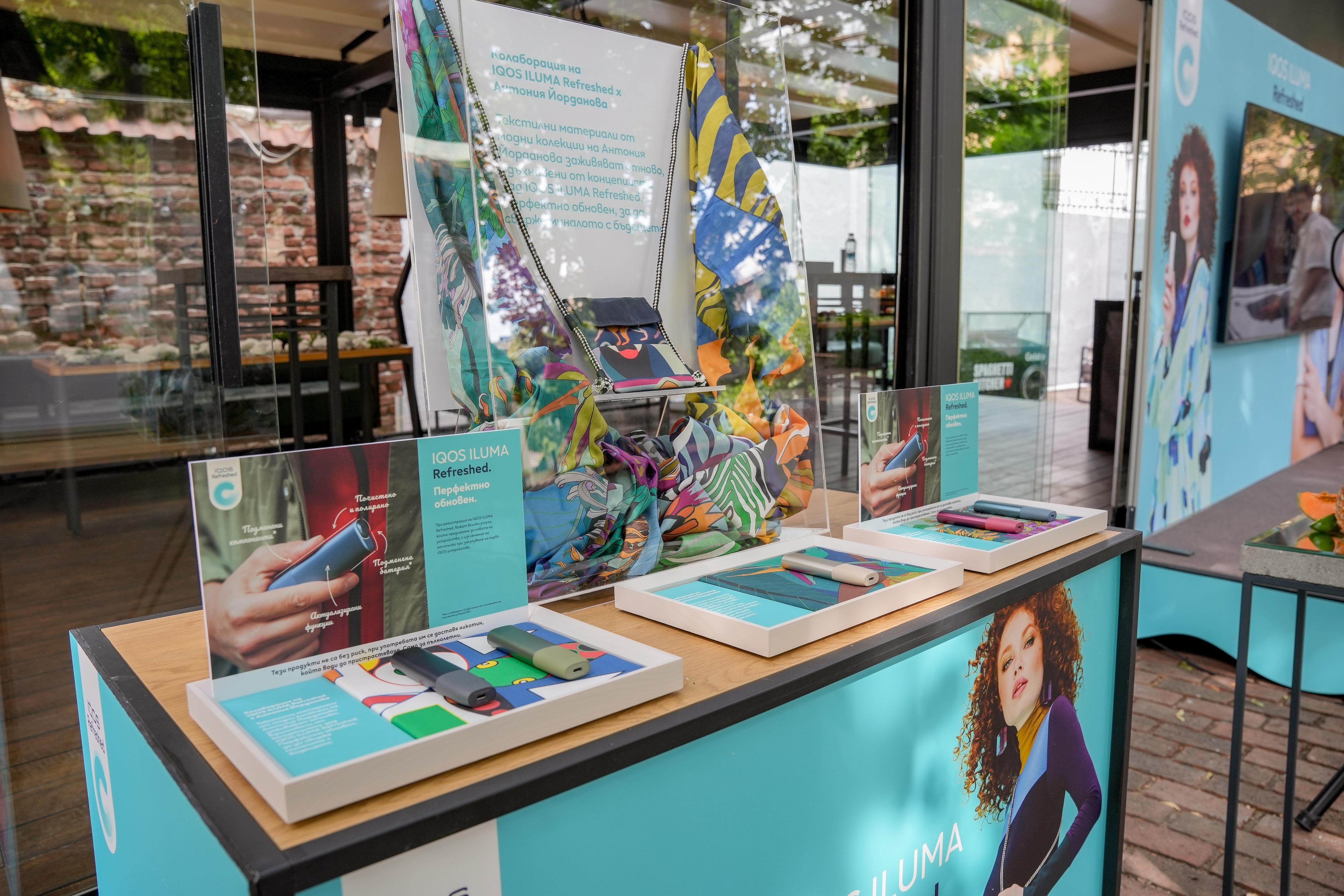For Philip Morris International (PMI), advancing our decarbonization journey is a strategic investment in business resilience, operational excellence, and long-term growth. As we reflect on our progress to date, refine our approach to guide our efforts in the years to come, and scale up what works, we want to highlight lessons learned in reducing greenhouse gas (GHG) emissions across our direct operations, and where we have seen powerful synergies between environmental performance and business results.
Targeted investments to reduce, switch, and compensate
In many regions, fluctuating energy pricing is resulting in higher market volatility, further reinforcing the urgency to decarbonize our direct operations. Across our global manufacturing facilities, our fleet, and throughout our operating markets, we are guided by science-based targets to achieve meaningful absolute emission reductions, paving the way towards our net zero commitment by 2040.
Target setting alone is not enough, however, what matters is action—and the ability to demonstrate that progress is real, replicable, and delivering tangible business benefits alongside the reduction of environmental impact.
For that reason, we are making targeted investments, focusing mainly on reducing emissions as much as possible, and switching to renewable energy wherever feasible.
As part of these two pillars, we are investing in energy efficiency and carbon emissions reduction technologies—investments that are already showing measurable returns. In fact, many of our initiatives have delivered meaningful productivity and efficiency gains in addition to measurable emissions reductions.
These outcomes strengthen our conviction: Sustainability is a key driver of performance.
Our scope and focus
Our efforts are anchored in two strategic programs: Drive 4 Zero (D40) and Zero Carbon Tech (ZCT). D40 serves as our global framework for reducing emissions across manufacturing and logistics, while ZCT focuses on deploying advanced technologies that enhance energy efficiency and support the shift to renewable energy at scale.
Together, these initiatives are modernizing our infrastructure, improving energy performance, and preparing our operations for the next phase of our decarbonization journey.
| Feature / focus area | Drive 4 Zero (D40) | Zero Carbon Technology (ZCT) |
| Primary goal | Reduce emissions through operational efficiency | Eliminate emissions via advanced technologies |
| Scope | Focuses on scope 1 and 2 emissions (direct operations) | Supports scope 1, 2, and indirectly, scope 3 emissions |
| Key strategies | Energy efficiency, waste reduction | Biomass boilers, Solar PV, electrification (e-boilers, heat pumps) |
| Technology use | Limited; focuses more on process optimization | High-tech solutions and infrastructure investments |
| Implementation sites | Manufacturing facilities and logistics | Manufacturing sites with high-energy demand |
| Innovation level | Moderate | High |
| Complementary role | Operational foundation for emissions reduction | Technological enabler for deep decarbonization |
As part of these initiatives, we have deployed a portfolio of advanced processes and technologies tailored to local conditions, with the goal of reducing emissions as meaningfully and sustainably as possible. These solutions help us use energy more efficiently, transition away from fossil fuels, and modernize our logistics footprint.
Main examples include:
- Electric and hybrid boilers: Replacing conventional fossil fuel-based boilers with electric or dual-fuel alternatives to reduce CO₂ emissions in steam generation powered by electricity generated from renewable sources.
- Heat pumps: Capturing and reusing heat from industrial processes to reduce energy waste and lower overall consumption.
- Photovoltaics (PV) on factory premises (on the ground, parking, or on rooftops): Generating on-site renewable electricity from solar panels to reduce grid reliance and energy costs.
- Biomass- and pyrolysis-based energy systems: Converting agricultural or organic waste into usable heat or energy, providing a renewable alternative to energy.
- Fleet modifications: Including adopting electric vehicles (EVs) where feasible; modernizing the fleet with fuel-efficient, low-emission models; exploring alternative fuels; and optimizing routes through load-sharing and smart software to reduce mileage and fuel consumption.
Each project is evaluated with a business case that weighs environmental, financial, and operational impacts. Our shadow carbon price of USD 105 is embedded in the financial evaluation of business proposals targeting GHG emissions reduction. This approach enables us to scale solutions effectively and manage risk in a rapidly evolving landscape.
From aspiration to impact
As of 2024, and with the support of these programs, we achieved a 41 percent absolute GHG emission reduction in our direct operations versus our 2019 baseline, and we remain well on track to meet our SBTi-validated target of a 50 percent reduction in our direct operations by 2030 (read more in our Integrated Report 2024).
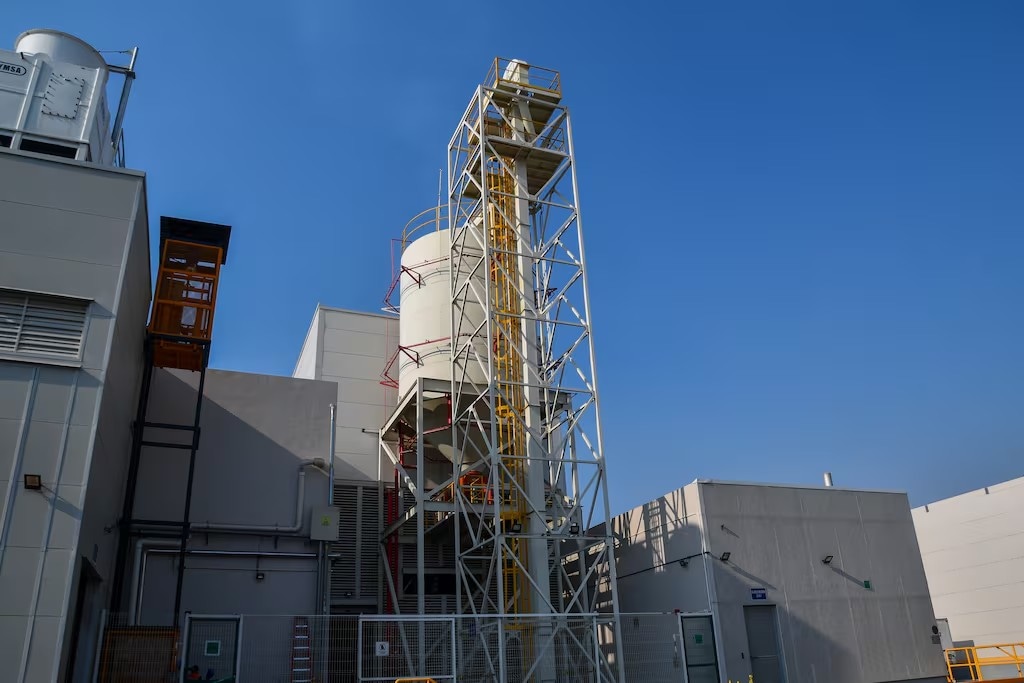
Image: Biomass boiler PMI’s Guadalajara factory.
Local action, global impact
Across markets, PMI’s low-carbon strategy is already generating impact—and insights.
Latin America
Mexico
At PMI’s Guadalajara factory, a biomass boiler fueled by agricultural waste has been installed. This shift away from fossil fuels is reducing scope 1 emissions and strengthening ties with local suppliers. The project has also helped stabilize energy costs amid volatile electricity pricing.
Brazil
PMI’s affiliate in Brazil is deploying PV boiler systems, and is advancing our broader scope 3 goals by engaging suppliers to reduce deforestation. These efforts are central to our agricultural supply chain transformation and demonstrate how operational and environmental strategies can align.
Find out more about our low-carbon strategy in Latin America
Europe
Italy:
PMMTB, PMI’s affiliate in Italy, has become a model of industrial decarbonization in the country by scaling its photovoltaic capacity—exceeding regulatory requirements twentyfold—while integrating heat pumps and hybrid systems to boost energy resilience, reduce emissions, and foster community collaboration.
Romania
PMI’s Otopeni factory in Romania has achieved significant GHG emission reductions through a multifaceted strategy encompassing the D40 and ZCT initiatives, which include expansive solar infrastructure generating green energy, as well as a transition to a sustainable fleet transition.
Portugal
Tabaqueira, PMI’s subsidiary in Portugal, has achieved significant GHG reductions through strategic investments in solar energy, fleet electrification, and community engagements. Local initiatives supported by Tabaqueira, such as the SMILE (Sintra Motion & Innovation for Low Emissions) project, and renewable energy expansion, align with PMI’s global sustainability strategy and foster local environmental innovation.
Greece:
Papastratos is powering climate action through a EUR 10 million energy transformation at its Aspropyrgos site. The factory is implementing real-time energy monitoring, thermal process optimization with the National Technical University of Athens, and smart load management to cut consumption and embed energy conscious operations, while shifting from fossil fuels to rooftop photovoltaics, industrial-scale advanced thermal energy systems to lower scope 1 and 2 emissions and strengthen energy resilience.
Netherlands
Philip Morris’s operations in the Netherlands have introduced heat pumps, hybrid gas and electric boilers, and are planning investments in solar panels across several sites, optimizing energy use in countries where grid emissions are high, and electricity is expensive. These upgrades are delivering efficiency gains while laying the groundwork for deeper local engagement on policy and infrastructure challenges.
Find out how we implement our low-carbon strategy in Europe
Asia
Philippines:
PMFTC, PMI’s affiliate in the Philippines, is leading electric fleet adoption in the country, overcoming infrastructure and policy gaps by deploying electric vehicles and building private charging stations, thereby cutting emissions—demonstrating that bold, business-led sustainability initiatives can thrive even in challenging environments. As of 2024, these initiatives have yielded a 37 percent reduction in carbon emissions per kilometer compared to 2019. PMFTC has also implemented ZCT technologies, in particular solar PV and e-boiler.
Find out how we implement our low-carbon strategy in Asia
Each project demonstrates the power of combining innovation, adaptation, and local engagement. And each one reinforces the same insight: Sustainability is scalable when it’s built into the business strategy.
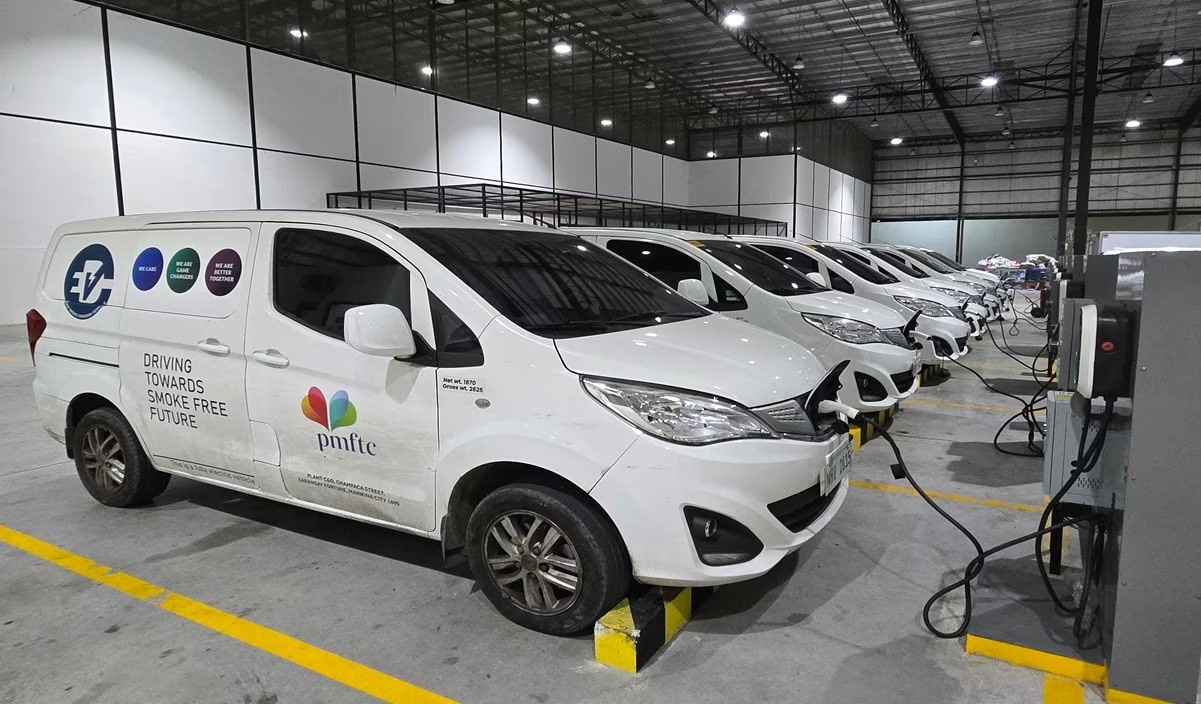
Image: Electric vehicles and charging stations in PMFTC Inc.
Business benefits
These specific market stories, and other examples as outlined in our 2024 Integrated Report, show that PMI’s low-carbon operations are delivering tangible impacts, including:
- Operational efficiency and cost savings: Investments in heat pumps, electric boilers, and rooftop photovoltaics—particularly across ZCT sites in the Netherlands, Italy, and Romania—have significantly lowered energy consumption. Between 2021 and 2024, in the Philippines and Indonesia, fleet telematics and efficiency upgrades saved approximately USD 2.1 million in fuel costs.
- Productivity gains: Heat recovery projects—such as using dryer waste heat to warm water—have reduced factory downtime and improved energy resilience. On the fleet side, CO₂ emissions per kilometer dropped from 222g in 2019 to 172g in 2024, thanks to more efficient vehicles and proactive driver training programs.
- Improved fleet performance and safety: Fleet modernization has also improved safety and reliability. A lower collision rate—achieving 0.32 collisions per million kilometers, well below our target of 0.65— which translated into fewer disruptions, less maintenance, and improved driver wellbeing.
Future vision: Sustainability by design
Looking ahead, we recognize that retrofitting existing operations is just the beginning. Transitioning to low-carbon solutions in established factories presents complexities—from integrating new technologies into aging infrastructure to managing disruptions to production.
That’s why embedding sustainability into early-stage planning can avoid many of the challenges of retrofitting—and deliver even greater impact with lower risk and faster returns, to meet evolving market demands and regulatory requirements.
A clear case for strategic low-carbon investments
The success of our decarbonization rests on more than technology—it requires trust, transparency, and continued collaboration across countries, our global production facilities, and our people. Our progress is rooted in consistency and shared accountability, from ZCT projects that combine emissions reduction with measurable cost savings to fleet initiatives that have cut CO₂ intensity by over 20 percent since 2019. The reductions achieved to date in scope 1 and 2 GHG emissions are supported by site-level ingenuity and a clear, centralized roadmap.
We are proud of how far we’ve come, and we are laser-focused on the road ahead. For PMI, the business case for transitioning to low-carbon is clear—it’s a strategic investment in business resilience, operational excellence, and long-term growth. Our efforts and progress to date continue to show that sustainability and profitability can be mutually reinforcing.
Disclaimer: This case study should be read in conjunction with Integrated Report 2024 and the 2024 FY actuals for selected EHS data:

